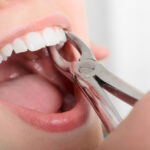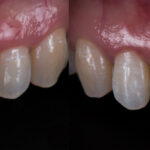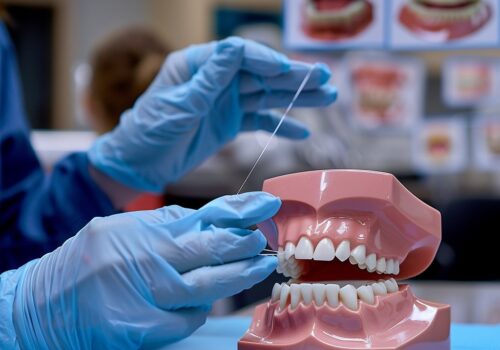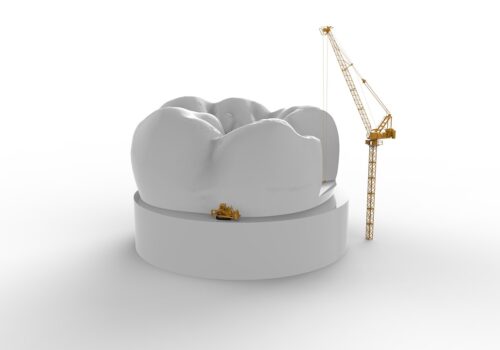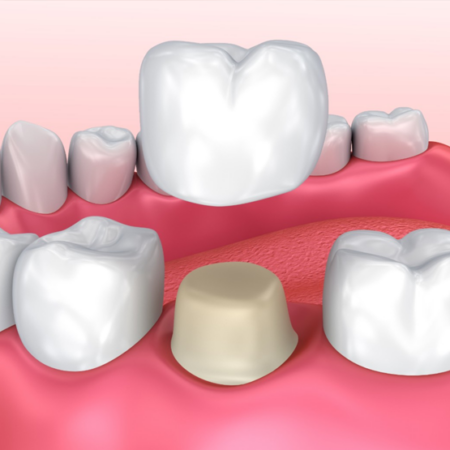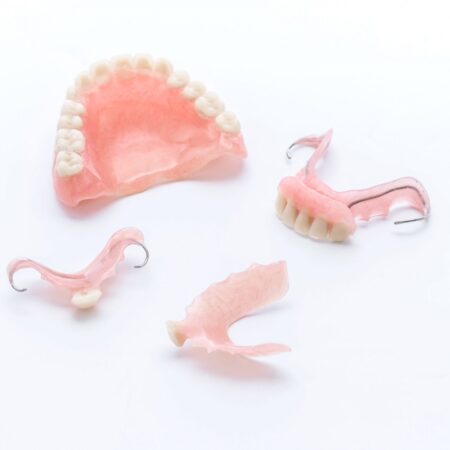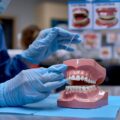Dental Abscess Treatment Guide: Options, Healing, Antibiotics, Risks

Dental Abscess Treatment
Three dental abscess treatment options are available depending on the type and severity of the infection. They include:
Abscess Draining
Abscess draining is typically recommended if the abscess is treated early and hasn’t progressed. During the procedure, a dentist will make a small incision into the abscess to drain the pus. A dentist cleans the infected area and prescribes antibiotics post-op.
Root Canal Treatment
Root canal treatment is necessary when the bacteria spread to the dental pulp and tooth roots. It is also necessary if there is an abscess at the root of a tooth (periapical abscess). During the procedure, a dentist removes the infected dental pulp in the patient’s tooth and also drains the abscess. Then the root canal is cleaned, shaped, sealed, and restored with a dental crown.
Tooth Extractions
Injuries, diseases, or tooth decay can necessitate tooth extractions. When a tooth with an abscess is beyond salvage, the dentist will perform an extraction. The procedure involves administering local anesthesia, using small instruments to remove the tooth, covering the socket with sterile gauze post-extraction, and applying pressure for about 20 minutes.
Summary
Tooth abscesses must be treated quickly to prevent spreading. Your dentist must drain the infection (never try to do this at home). Root canal treatment and tooth extraction may also be necessary (depending on the severity).
Dental Abscess Healing Time
After an extraction, the infection will drain through the empty socket. Your tooth can take a few weeks to fully heal after a dental abscess treatment. Your dentist will schedule check-ups with you to ensure you are healing properly. You may still have an infection if you are experiencing:
- Extreme pain even with painkillers
- You had or have a fever
- You had or have difficulty eating, speaking, or breathing
Best Antibiotics For Dental Abscesses Treatment
Antibiotics are taken after the root canal or extraction procedure to help clear up the infection. Taking it without removing the infected tooth will not cure a dental abscess. Commonly prescribed antibiotics for dental abscesses include amoxicillin and penicillin. Other antibiotics prescribed to people with tooth abscesses include:
- Clindamycin
- Ampicillin and sulbactam
- Azithromycin (Zithromax)
- Erythromycin
- Keflex
- Metronidazole
- Ticarcillin and clavulanate
The course of treatment for most antibiotics is 10 to 14 days. They must be taken for the entire course of treatment, even if your symptoms disappear.
Tips for Managing Pain
Ibuprofen and similar over-the-counter (OTC) painkillers can help control dental abscess pain. However, they can’t treat the condition. Only use OTC painkillers that are safe for you and do not prolong their use. Long-term use of OTC painkillers damages your organs. These are good to take while you wait for your treatment. You can also take them with the antibiotics your dentist prescribes afterward.
Summary
Amoxicillin can be used to treat the underlying bacterial infection. However, antibiotics will not cure an abscess. Professional drainage is still necessary. Over-the-counter medications can be used to manage pain before/after your appointment.
Risk Factors of an Untreated Dental Abscess
Dental abscesses should be treated promptly to avoid the risk of serious complications. These complications include:
- Tooth loss — if the abscessed tooth becomes severely infected or weak, a root canal will not be able to save it. If this is the case, you must get the tooth removed and replaced with a dental implant and dental crown (artificial tooth).
- Bone infection — leaving the tooth untreated can result in an infection that affects the surrounding facial bones.
- Sinus infections — frequent and painful sinus infections and/or oral soft tissue infections can also develop.
- Septicemia — This is a life-threatening condition that occurs when your entire bloodstream becomes infected. A dental abscess can trigger septicemia if left untreated long-term.
- Brain abscess — a dental abscess infection can travel to the brain, resulting in another abscess. This is relatively rare but can occur if the infection becomes severe enough. A brain abscess is dangerous and requires a visit to the emergency room or hospital for treatment.
Summary
A tooth abscess is serious and can be life-threatening (if left untreated). It can lead to tooth loss, bone/sinus infections, septicemia (a deadly blood infection), or a brain abscess (rare).


